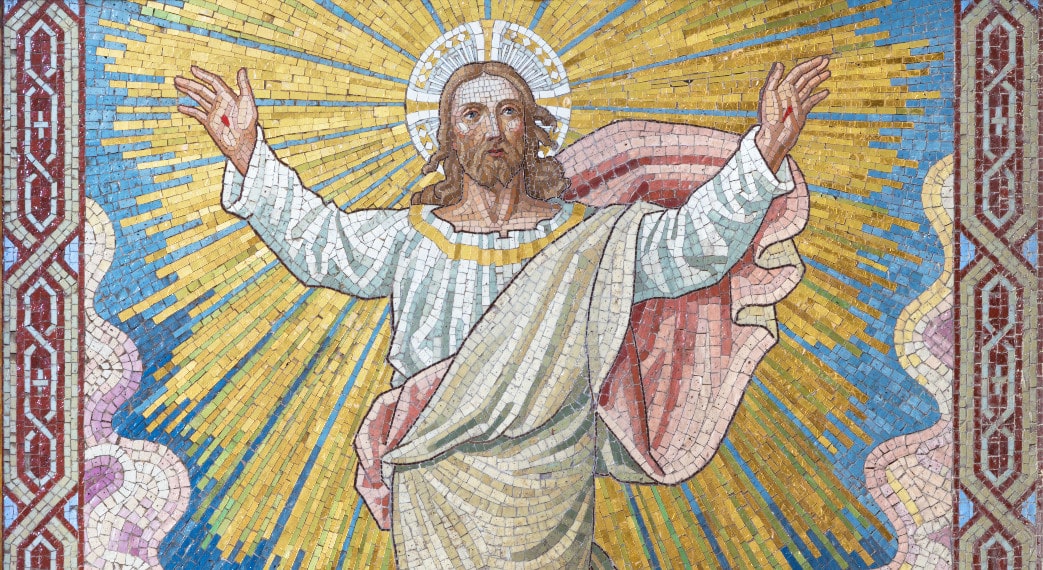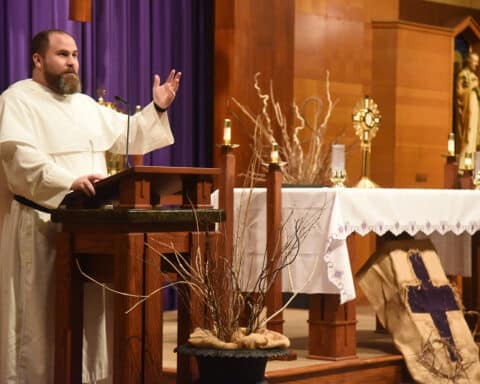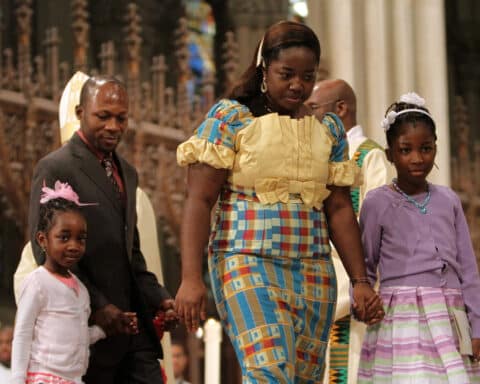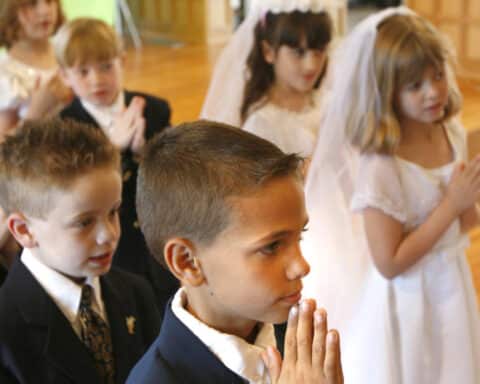In the Gospel reading for Ascension Sunday, St. Luke recounts the moments before and after Christ rose to heaven to sit at the right hand of his Father. Jesus had his apostles with him, and “he led them out as far as Bethany, raised his hands, and blessed them. As he blessed them he parted from them and was taken up to heaven” (Lk 24:50-51).
One would think Jesus’ ascension would have caused his disciples much sorrow and anxiety. They had recently witnessed his brutal killing by crucifixion. For three days, they mourned his death, only to celebrate his miraculous resurrection on Easter. Weeks later, to see their Lord — their leader — leave them again so suddenly could have been a devastating blow not only to the apostles but to the early burgeoning Church.
Clearly, it was not. St. Luke writes that immediately after Christ ascended to heaven, the apostles “did him homage and then returned to Jerusalem with great joy” (Lk 24:52).
As Pope Francis noted in one of the first general audiences of his pontificate, on April 17, 2013, the fact that the apostles were filled “with great joy” after Jesus left them “seems to us a little odd.” He continued: “When we are separated from our relatives, from our friends, because of a definitive departure and, especially, death, there is usually a natural sadness in us since we will no longer see their face, no longer hear their voice, or enjoy their love, their presence. The evangelist instead emphasizes the profound joy of the apostles. But how could this be? Precisely because, with the gaze of faith, they understand that although he has been removed from their sight, Jesus stays with them forever; he does not abandon them.”
Nor has he abandoned us.
In a few short weeks, on Corpus Christi Sunday, June 19, the Church in the United States will embark on a National Eucharistic Revival, a three-year journey to deepen our devotion to Christ’s physical presence on earth, which we celebrate at every Mass in the holy Eucharist. To mark the initial phase of the National Eucharistic Revival, dioceses across the country will be holding special Eucharistic processions to bring Christ to communities where his presence is sorely needed. “How much need modern humanity has to rediscover the source of its hope in the Sacrament of the Eucharist,” Pope Benedict XVI said in 2006.
Per the website of the National Eucharistic Revival: “Over three years, every Catholic diocese, parish, school, apostolate and family is invited to be a part of renewing the Church by enkindling a living relationship with the Lord Jesus Christ in the Holy Eucharist.”
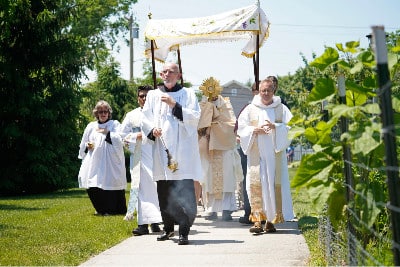
Eucharistic processions, public Holy Hours and other events highlighting Christ’s true presence in the world remind us “that we are called to go out and bring Jesus to others,” Pope Francis said. “Bringing Christ to those we meet in our daily lives” is the very mission of the Church. The National Eucharistic Revival is an opportunity to reintroduce — or, in so many cases, to introduce for the first time — the Eucharist to those who have strayed from the Faith or are unfamiliar with the power of the Blessed Sacrament: our sons and daughters, grandchildren, parents, friends and so many others who, we pray, will find comfort and hope in Christ’s merciful, loving embrace.
Pope St. Pius X, who led the Church shortly after the turn of the 20th century, said that “holy Communion is the shortest and safest way to Heaven.” He added: “There are others: innocence, but that is for little children; penance, but we are afraid of it; generous endurance of trials of life, but when they come we weep and ask to be delivered. The surest, easiest, shortest way is the Eucharist.”
A century later, Pope Benedict echoed his predecessor, writing in Sacramentum Caritatis, his 2007 apostolic exhortation “on the Eucharist as the source and summit of the Church’s life and mission,” that “receiving the Eucharist means adoring him whom we receive. Only in this way do we become one with him, and are given, as it were, a foretaste of the beauty of the heavenly liturgy.”
And so, on Ascension Sunday, not only do we celebrate Christ’s entrance into heaven, but through our participation in the Sacrament of the Eucharist, we are invited to join him there for eternity.
Our Sunday Visitor Editorial Board: Gretchen R. Crowe, Scott P. Richert, Scott Warden, York Young

